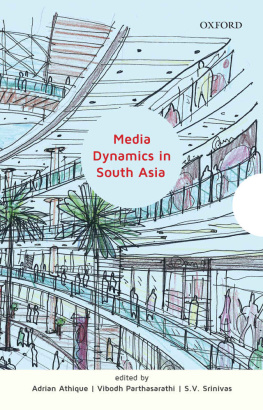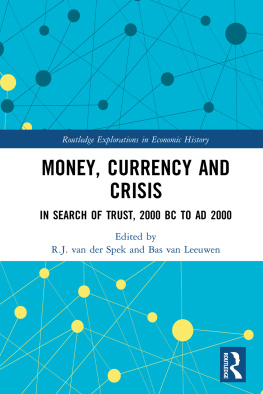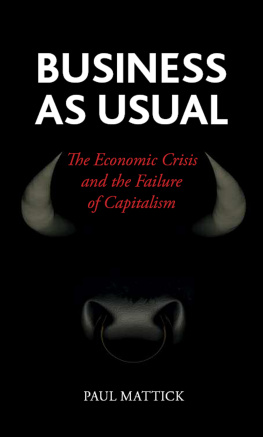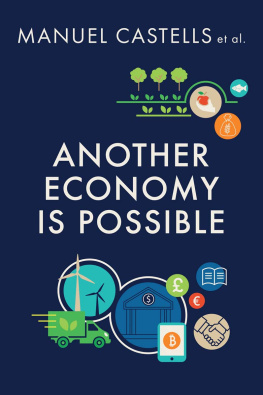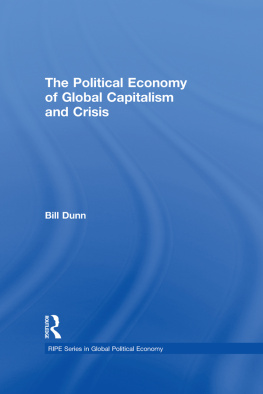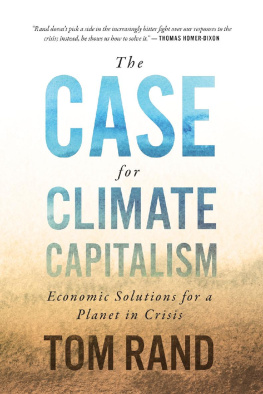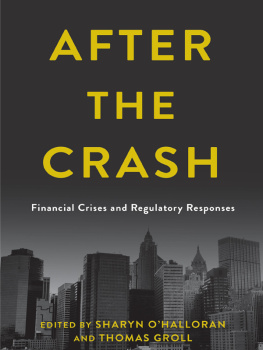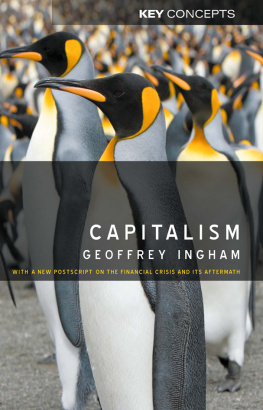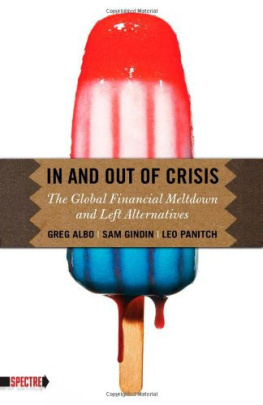
Cultural Studies and Finance Capitalism
While many discussions of the economic crisis of 2007-2008 have sought to explain the causes of the financial collapse, this volume looks to supplement these accounts by exploring possible alternatives for the post-crisis world in which we now live. However, rather than offering a strictly economic approach, Cultural Studies and Finance Capitalism argues that the crisis was as much cultural as economic, and that any way forward must understand the complex relationship between media, culture and the economy. The chapters in this volume deal with a wide range of themes including celebrity culture, media coverage of the economy, examinations of economic theory and financial markets. They bring together research that combines an historical perspective with a view towards the future of critical cultural and political analysis. In a period marked by anxiety and economic austerity, this volume offers the reader tools for understanding the place and importance of cultural research in the post-crisis era.
This book was originally published as a special issue of the journal Cultural Studies.
Mark Hayward is Assistant Professor in the Department of Global Communications at the American University of Paris, France. His research focuses on television, cultural policy and representations of the economy in popular culture. He has published essays in Modern Italy and Cultural Studies as well as translating several texts from Italian and French.
Cultural Studies and Finance Capitalism
The Economic Crisis and After
Edited by
Mark Hayward
First published 2012
by Routledge
2 Park Square, Milton Park, Abingdon, Oxon, OX14 4RN
Simultaneously published in the USA and Canada
by Routledge
711 Third Avenue, New York, NY 10017
Routledge is an imprint of the Taylor & Francis Group, an informa business
2012 Taylor & Francis
This book is a reproduction of Cultural Studies, volume 24, issue 3. The Publisher requests to those authors who may be citing this book to state, also, the bibliographical details of the special issue on which the book was based.
All rights reserved. No part of this book may be reprinted or reproduced or utilised in any form or by any electronic, mechanical, or other means, now known or hereafter invented, including photocopying and recording, or in any information storage or retrieval system, without permission in writing from the publishers.
Trademark notice: Product or corporate names may be trademarks or registered trademarks, and are used only for identification and explanation without intent to infringe.
British Library Cataloguing in Publication Data
A catalogue record for this book is available from the British Library
ISBN13: 978-0-415-68681-5
Typeset in Garamond
by Taylor & Francis
Publishers Note
The publisher would like to make readers aware that the chapters in this book may be referred to as articles as they are identical to the articles published in the special issue. The publisher accepts responsibility for any inconsistencies that may have arisen in the course of preparing this volume for print.
Contents
Mark Hayward
Lawrence Grossberg
Jayson Harsin
Darrin Hicks & Mathew Dunn
John Clarke
Steve Cross & Jo Littler
Randy Martin
Stefano Harney
Mark Hayward
John Clarke is a professor of Social Policy at the Open University in the UK. His work has addressed the struggles to remake welfare states and public services. Three recent books explore these issues: Changing Welfare, Changing States: New Directions in Social Policy (Sage, 2004); Creating Citizen-Consumers: Changing Publics and Changing Public Services (with Janet Newman, Nick Smith, Elizabeth Vidler and Louise Westmarland, Sage, 2007); and Publics, Politics and Power: Remaking the Public in Public Services (with Janet Newman, Sage, 2009).
Steve Cross is Senior Lecturer in Media and Cultural Studies at London College of Communication, University of the Arts London. He has taught at Goldsmiths College, London School of Economics and at the Universities of Lodz, Essex and Middlesex.
Matthew Dunn is a doctoral candidate in Human Communication Studies at the University of Denver. His research explores the articulation of communication ethics and psychoanalysis.
Lawrence Grossberg is the Morris Davis Distinguished Professor of Communication Studies at the University of North Carolina at Chapel Hill, as well as Distinguished Adjunct Professor of American Studies, Anthropology and Geography. He is, coincidentally, the co-editor of this journal. His new book, We All Want to Change the World: The Intellectual Labor of Cultural Studies will be published in 2010 by Duke University Press.
Stefano Harney is a Chair in Strategy, Culture, and Society at the School of Business and Management, Queen Mary, University of London.
Jayson Harsin is Assistant Professor of Global Communications at The American University of Paris. His reasearch interests include economic rights and political imaginaries; and convergence culture, rumor, and political branding. His most recent work appears in the edited collections Cultural Studies: An Anthology (Blackwell, 2009) and The Diffusion of Social Movements (Cambridge University Press, forthcoming 2010).
Mark Hayward teaches in the Department of Global Communication at the American University of Paris.
Darrin Hicks is an Associate Professor in Human Communication Studies at the University of Denver. His current research focuses on affective dimensions of collaborative governance as well as the genealogy of conviction.
Jo Littler is Senior Lecturer in Media and Cultural Studies at Middlesex University, London, UK. She is author of Radical Consumption: Shopping for Change in Contemporary Culture (Open University Press, 2009), co-editor (with Roshi Naidoo) of The Politics of Heritage: The Legacies of Race (Routledge, 2005) and editor of Mediactive 2: Celebrity (L&W, 2005; downloadable at http://www.lwbooks.co.uk). She is currently writing a book on celebrity.
Randy Martin is Professor and chair of Art and Public Policy at New York University and author, most recently, of An Empire of Indifference: American War and the Financial Logic of Risk Management (Duke University Press, 2007).
Mark Hayward
Recovery, reconstruction and cultural studies
This introductory article engages with possibilities for cultural studies during the economic crisis of 2008 and its aftermath. It begins by considering the nature of the crisis and the recovery that follows. It goes on to explore the relationship between cultural studies and economic discourse, arguing that the cultural studies of the economy and the economic has always taken place in reference to a specific set of contextual and conjunctural factors. In conclusion, the relationship between the politics of recovery and the possibilities of reconstruction are developed as a possible way of understanding current and future contributions by cultural studies researchers to discussions about the economy


